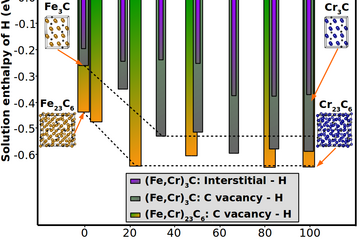All genres
21.
Talk
Low-cost synthesis of semiconducting nanostructures used in energy applications. 61. Metallkunde-Kolloquium - Werkstoffforschung für Wirtschaft und Gesellschaft, Lech am Arlberg, Austria (2015)
22.
Poster
Insights in carbon metal-oxide/sulfide nanohybrid materials by electron microscopy. IAMNano 2019, Düsseldorf, Germany (2019)
23.
Poster
Nanohybrid materials and thin films for battery applications. Microscopy Conference, Berlin, Germany (2019)
24.
Poster
Challenges in TEM sample preparation of solvothermally synthesized CuInS2 thin films. Microscopy Conference (MC, Dreiländertagung) , Lausanne, Switzerland (2017)
25.
Poster
Growth of CuInS2 films on FTO for green energy applications. MRS Fall Meeting, Boston, MA, USA (2016)
26.
Poster
Insight into CuInS2 thin films by electron microscopy. European Microscopy Conference (EMC), Lyon, France (2016)
27.
Poster
Electron microscopy study of CuInS2 solvothermally synthesized with l-Cysteine. Microscopy Conference, Göttingen, Germany (2015)
28.
Poster
Microstructural investigation of solvothermally grown CuInS2. IAM Nano, Hamburg, Germany (2015)
29.
Poster
Copper indium disulfide films synthesized with L-cysteine. Autumn School on Microstructural Characterization and Modelling of Thin-Film Solar Cells, Werder, Potsdam, Germany (2014)
30.
Poster
TiO2/CuInS2 heterostructures for solar cell applications. E-MRS Spring Meeting, Lille, France (2014)
31.
Thesis - PhD
Synthesis and in-depth electron microscopic characterization of solvothermally grown copper indium sulfide thin films. Dissertation, RWTH Aachen, Aachen, Germany (2018)











